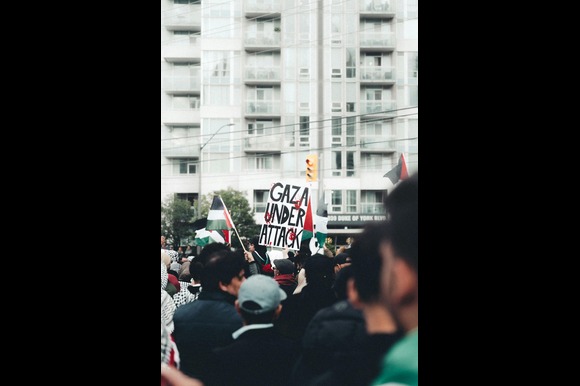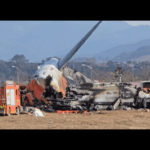At least 70 Palestinians have been killed in ongoing Israeli airstrikes across Gaza, as indirect ceasefire negotiations continue in Doha, Qatar.
The majority of the casualties occurred in northern Gaza, with more than 50 people reportedly killed in areas including the densely populated Jabalia refugee camp since early Wednesday morning. The Gaza Ministry of Health stated that approximately 50 were killed in and around Jabalia, while 10 more lost their lives in attacks on Khan Younis in the south.
The Israeli military has yet to issue an official statement on the latest strikes.
In Jabalia, rescue teams worked under extremely challenging conditions, using basic hand tools and the light from mobile phone cameras to dig through the rubble of destroyed buildings in search of victims — including children.
Reporting from Deir el-Balah in central Gaza, Al Jazeera correspondent Tareq Abu Azzoum described the Israeli campaign as “systematic and intensifying,” asserting that it primarily targets residential homes. According to Abu Azzoum, the apparent goal is to force families to flee their homes and relocate to makeshift shelters, facilitating broader plans for displacement from northern Gaza.
“This has been a very dramatic reality,” he said, emphasizing the escalating humanitarian crisis. “It underscores the severity of the toll that children and displaced families have been bearing in northern Gaza throughout the past week.”
These latest attacks coincide with ongoing ceasefire discussions in Doha, where Israeli officials are engaging in indirect talks with Hamas via mediators from Qatar, Egypt, and the United States. The diplomatic efforts resumed shortly after the temporary release of Israeli-American hostage Edan Alexander during a brief pause in hostilities.
Despite the negotiations, Israeli Prime Minister Benjamin Netanyahu reaffirmed on Tuesday that Israel’s military operations in Gaza would continue even if a ceasefire agreement is reached.
Since the onset of the war on October 7, 2023 — sparked by a Hamas-led attack on southern Israel that killed at least 1,139 people, according to Israeli figures cited by Al Jazeera — Israel’s military campaign has left more than 52,908 Palestinians dead, according to Gaza health authorities. The offensive has devastated Gaza’s urban infrastructure and displaced over 90 percent of the enclave’s 2.3 million residents, many of them multiple times.
Amid worsening humanitarian conditions, international criticism of Israel’s siege and military conduct continues to grow. French President Emmanuel Macron delivered a scathing condemnation of Netanyahu’s decision to block humanitarian aid from entering Gaza. Speaking Tuesday on France’s TF1 television, Macron called the blockade “a disgrace.”
“There’s no medicine. We can’t get the wounded out. Doctors can’t get in. What he’s doing is a disgrace. It’s a disgrace,” Macron said, following a visit last month to injured Palestinians in El Arish hospital in Egypt.
Macron also called for the urgent reopening of Gaza’s borders to allow humanitarian convoys access. “Then, yes, we must fight to demilitarise Hamas, free the hostages, and build a political solution,” he added.
According to the Integrated Food Security Phase Classification (IPC), nearly half a million Palestinians are now facing the risk of starvation, living under “catastrophic” hunger conditions. Another one million are struggling to access adequate food.
The IPC has warned that famine in Gaza is imminent if Israel does not lift its blockade and halt its military operations. For the past 10 weeks, Israel has prohibited the entry of essential supplies — including food, shelter materials, and medicine — into Gaza while continuing its aerial and ground assaults.
With Gaza’s internal food production capacity decimated by over a year and a half of military operations, its population remains almost entirely dependent on foreign aid for survival.






